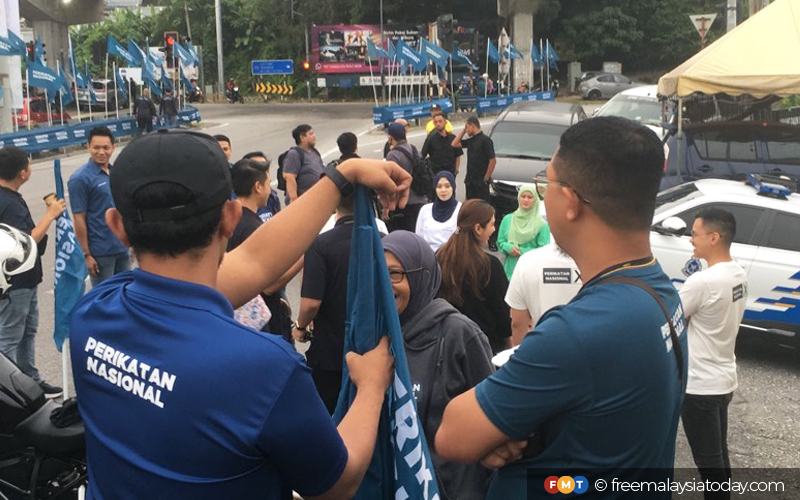
PETALING JAYA: Election fever kicks off in earnest this morning with the nomination of candidates for a total of 245 seats that are to be contested for the legislative assemblies of six states.
On Aug 12, voters in Kedah, Kelantan, Terengganu, Penang, Selangor and Negeri Sembilan will go to the polls.
Meanwhile, an entire nation will hold its collective breath to see what implications the results will have, not just for each of the states, but how it will affect the unity government cobbled together at the federal level following the 15th general election (GE 15) last November.
The six states show a country hopelessly split almost down the middle, and will see a battle between two diametrically different political ideologies.
Selangor, Penang and Negeri Sembilan reflect a more moderate and inclusive Malaysia, and harken back to a time when the country was less divided along racial and religious lines.
Kelantan, Terengganu and Kedah, however, are standard bearers for a more conservative brand of politics led by a Malay/Islam-centric government dominated by PAS.
The elections will also showcase the present state of the three dominant coalitions in Malaysian politics today.
At the federal level, Anwar Ibrahim’s Pakatan Harapan (PH) leads a unity government, which includes Barisan Nasional (BN), these days a waning force, as well as Gabungan Parti Sarawak (GPS) and Gabungan Rakyat Sabah (GRS).
Prior to the dissolution of the state assemblies, PH led the state governments in Selangor, Penang and Negeri Sembilan.
Kelantan, Terengganu and Kedah were controlled by Perikatan Nasional (PN), a coalition led by Bersatu president Muhyiddin Yassin, but dominated by PAS, with Penang-based party Gerakan offering nothing more than token non-Malay representation.
From an economic standpoint, Selangor, Penang and Negeri Sembilan far outperform the other three.
The jewel in the crown is Selangor, which at RM364.27 billion contributed 23% of the national GDP in 2022. Penang and Negeri Sembilan combined to bring in almost RM160 billion (10%).
Meanwhile Kedah, Kelantan and Terengganu, markedly less advanced, collectively contributed RM115.15 billion (7.4%).
At a time when the economy appears to be a major concern, those numbers should be what matters, but intense politicking along racial and religious lines have polarised the nation in recent years.
PN has pushed an intense Malay-Muslim agenda in a bid to gain political ground. This has not been helped by the widely held perception that Umno had been blighted by endemic corruption for far too long, ultimately causing BN to lose Putrajaya in 2018, after six decades in power.
The stain of corruption remains with Umno, which has failed over five years to undergo any meaningful reform.
Its president Ahmad Zahid Hamidi is still at the helm and is even Anwar’s deputy prime minister, despite facing an ongoing corruption case in the High Court.
That makes the party’s alliance with PH both at federal and state level controversial, alienating many at the grassroots level, and causing many to cross over to Bersatu or PAS, or at least consider lodging a protest vote in PN’s favour.
Yet, PN has its own fair share of troubles.
Muhyiddin is himself facing criminal charges for alleged abuse of power in connection with the Jana Wibawa programme he initiated as prime minister.
Several other Bersatu leaders and members are also facing allegations of corruption and the party itself had its bank accounts frozen by the Malaysian Anti-Corruption Agency (MACC) pending investigation.
PAS is also not without its troubles. Caretaker Kedah menteri besar Sanusi Nor is facing two charges of sedition for allegedly offensive remarks he made against the royalty, while members of his state’s corporate arm and administration are being probed by the MACC in connection with alleged illegal mining operations.
On the other side of the aisle, DAP national chairman Lim Guan Eng is facing corruption charges in relation to the Penang undersea tunnel project.
Despite this, the party has controversially named him as candidate for the Air Putih seat in Penang amid speculation that he may even reclaim the post of chief minister which he held for two terms, from 2008 to 2018.
Meanwhile, DAP’s Indian members have been crying foul after long-serving deputy chief minister P Ramasamy was omitted from the list.
Most pundits predict that the non-Malay vote will remain firmly with the unity alliance, primarily due to their longstanding respect for, and trust in, Prime Minister Anwar Ibrahim, not least for persevering with his “Reformasi” agenda despite spending the best part of two decades in the political wilderness, and, for several years, in jail.
The critical question is whether he can draw enough of the Malay vote to retain the unity alliance’s three states and perhaps even cause an upset by wresting any one of the PN-led states.
Having weathered a rocky start, Anwar appears to be gradually coming to terms with the broad scope of his dual job description as prime minister and finance minister.
On Thursday, he outlined his grand “Madani” vision of ramping up the beleaguered economy while reigning in the cost of living. How successful he will be remains to be seen.
Just as importantly, Anwar has also sought to assure the Malay community that he can be trusted to preserve their special rights and uphold the sanctity of Islam.
His crusade against corruption since taking office should also stand him in good stead.
Ultimately, the question is whether the Malays will entrust him with their mandate.
In that sense, these state elections may well be a referendum on his leadership. - FMT



No comments:
Post a Comment
Note: Only a member of this blog may post a comment.